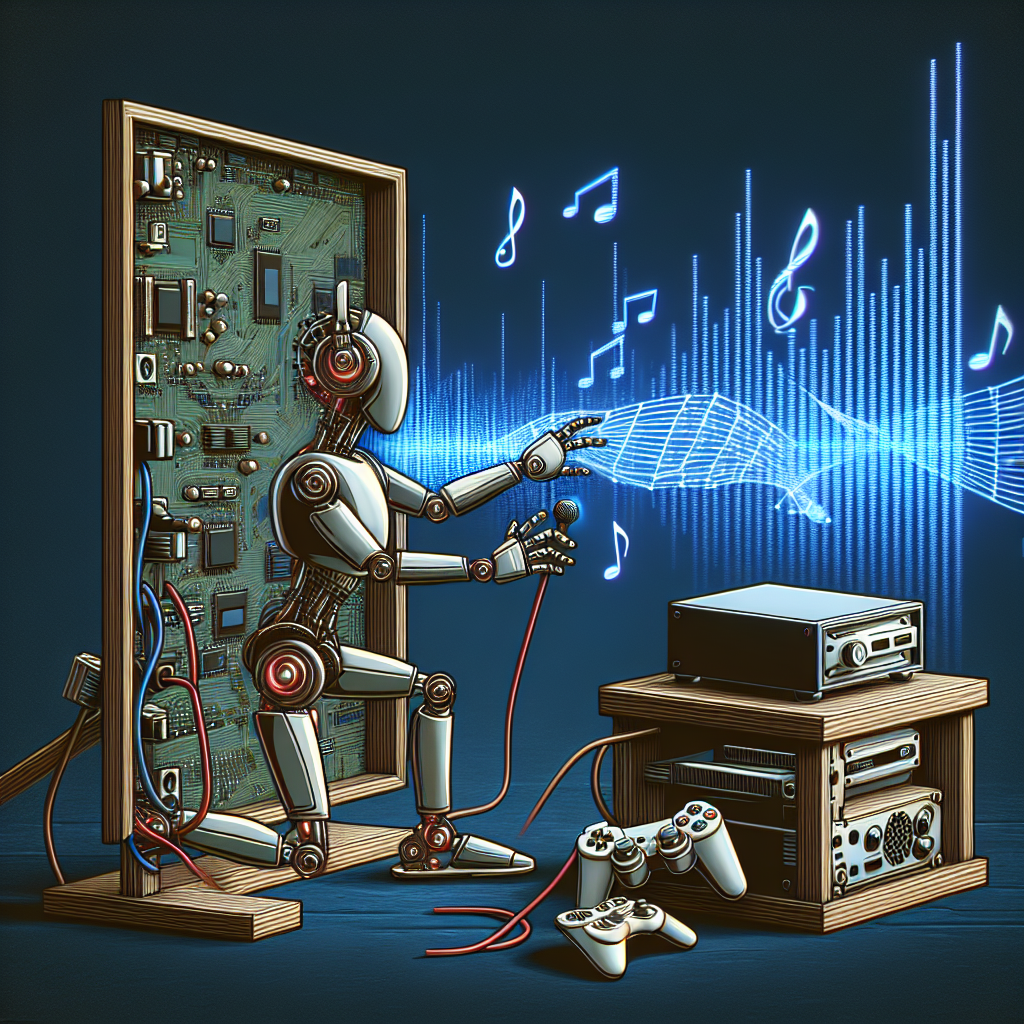AI and the Development of Game Sound Recognition Systems
In recent years, artificial intelligence (AI) has made significant advancements in various fields, including the development of game sound recognition systems. These systems use machine learning algorithms to analyze and interpret audio signals in video games, allowing for more immersive and interactive gaming experiences. In this article, we will explore how AI is being used to enhance game sound recognition systems and the impact it has on the gaming industry.
AI in Game Sound Recognition Systems
Game sound recognition systems use AI algorithms to process and analyze audio signals in real-time. These systems can identify and categorize different sounds, such as footsteps, gunshots, and explosions, allowing players to react more quickly and strategically in games. AI-powered sound recognition systems can also enhance the overall gaming experience by creating more realistic and dynamic soundscapes.
One of the key technologies used in game sound recognition systems is deep learning, a subset of machine learning that uses neural networks to simulate the human brain’s ability to learn and adapt. Deep learning algorithms can process large amounts of audio data and extract meaningful patterns and features, allowing for more accurate sound recognition in games.
Another important technology used in game sound recognition systems is natural language processing (NLP), which enables computers to understand and interpret human speech. NLP algorithms can be used to analyze and classify spoken dialogue in games, allowing for more interactive and engaging gameplay experiences.
Impact on the Gaming Industry
The development of AI-powered game sound recognition systems has had a significant impact on the gaming industry. These systems have revolutionized the way sound is used in games, creating more immersive and realistic audio experiences for players. By accurately recognizing and categorizing different sounds, AI-powered systems can enhance gameplay and provide players with valuable information and feedback.
AI-powered game sound recognition systems have also enabled developers to create more dynamic and responsive soundscapes in games. By using machine learning algorithms to analyze audio data in real-time, developers can generate adaptive soundtracks that change based on player actions and events in the game. This level of interactivity and immersion was previously not possible with traditional sound design techniques.
Furthermore, AI-powered game sound recognition systems have opened up new possibilities for game developers to experiment with innovative gameplay mechanics and features. For example, sound-based gameplay mechanics, such as echolocation and sound-based puzzles, have become more prevalent in modern games thanks to advancements in AI technology. These unique gameplay experiences add depth and complexity to games, attracting new players and expanding the gaming audience.
FAQs
Q: How does AI recognize sounds in games?
A: AI-powered game sound recognition systems use machine learning algorithms, such as deep learning and natural language processing, to analyze and interpret audio signals in games. These algorithms can identify and categorize different sounds, allowing for more immersive and interactive gameplay experiences.
Q: What are some examples of AI-powered game sound recognition systems?
A: One example of an AI-powered game sound recognition system is Google’s AudioSet, a large-scale dataset of annotated audio samples that can be used to train machine learning models for sound recognition. Another example is Dolby Atmos, a spatial audio technology that uses AI algorithms to create immersive soundscapes in games.
Q: How do AI-powered game sound recognition systems enhance the gaming experience?
A: AI-powered game sound recognition systems enhance the gaming experience by creating more realistic and dynamic soundscapes in games. These systems can accurately recognize and categorize different sounds, allowing for more immersive gameplay experiences and providing players with valuable information and feedback.
Q: What are some future developments in AI and game sound recognition systems?
A: In the future, we can expect to see advancements in AI technology that will further enhance game sound recognition systems. This may include the development of more sophisticated deep learning algorithms that can process audio data more efficiently and accurately, as well as the integration of AI-powered voice recognition technology for more interactive gameplay experiences.

